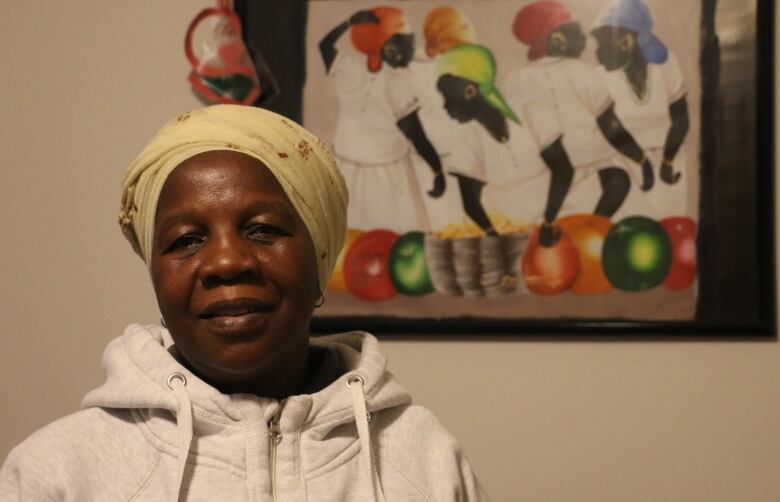New Canadians say labels segregate them from others
Terminology curbs acceptance of refugees because it segregates them from other Canadians, newcomers say

Newcomers often face verbal combat when they come to Canada.
Besides not knowing English, newcomers come up against different labels that segregate them from others, says Fatumah Mbabaali, principal of Collicutt School in the Garden City area.
- Yazidi refugees settle into life in Winnipeg
- Winnipeg's newest Syrian refugees hope for 'a great life here in Canada'
"I hate the word 'refugee' because, what does it mean? Are these people are so different from us that we can't just say, 'Welcome to Canada'?" Mbabaali said.
"I'm a refugee myself, but I don't think about it because I'm no different than other Winnipeggers."
'All you have to do is say welcome'
Mbabaali came from Uganda in 1984 with her family to escape the bloodshed she witnessed in the streets, she says.
She says the terminology used to describe refugees makes them feel uneasy and unwelcomed in Winnipeg or in classrooms. But she has a solution she hopes more people can adopt.
"It's simple. All you have to do is say, 'Welcome,'" she says. "But don't interview them, don't interrogate them, but open up to them by simply talking to them."
Mbabaali says that saying things like "the influx of refugees" is bothersome because it gives a negative idea that refugees aren't welcomed to Canada.
"An influx sounds like a horde of bees coming to sting you," she says.
"But these are people escaping death and horror — they're the ones that feel like they are being chased by bees, why do we need to enforce that fear on them with the use of our words?"

'We are people'
Since more Syrian refugees have arrived at her school, Mbabaali says she's grateful her teachers are working together to break language barriers and are learning basic greetings and posting them around the school so the children feel more welcomed.
"It's not just for them to adapt to our culture, but for us to adapt to their culture and understand it because it's important for children to know and embrace who they are."
Getrude Hambira, a refugee and human rights defender from Zimbabwe, agrees.
"Being labeled as a refugee is a horrible way to describe someone—we are people," she says. "We live, we smiled at home, had families, were angry, and suffered."
Hambira came to Winnipeg in 2010 after she was exiled from Zimbabwe after making a documentary, House of Justice, while being the first woman to run the General Agriculture and Plantation Workers' Union of Zimbabwe.
The documentary shows the beatings and torture farm workers and owners sustained at the hands of the government.
"I was contributing to a Third World country," she says. " It's like people think my family are not civilized 'cause we are refugees. But I am a person too."
'We need to bridge the gap'
Hambira says the one thing that bothers refugees, especially for her children, is that besides labels — silent racism and overt bullying also exist.
She says when her son first arrived, it was suggested he to go to a school for refugees.
He declined, she says, because he knew English.
"The only issue for him is that our terminology differs from Canadians," Hambira says. "For example, we were taught that traffic lights are called robots."
Hambira says that instead of segregating refugees, they should be welcomed like at Mbabaali's school.
"It's two-sided, refugees need to understand Canadians, but Canadians need to understand refugees too," she says. "We need to bridge the gap in our language barriers and become more welcoming."
Hambira and Mbalaali say that the only way the gap between refugees and Canadians can be narrowed is through education.
This is one in a series of stories written for CBC Manitoba by Red River College journalism students that looks at ways conflict abroad has shaped Winnipeg.
Here are other stories in the series: